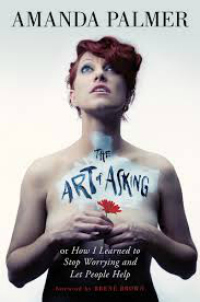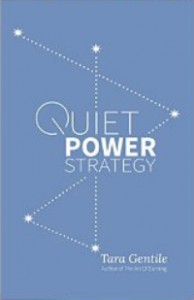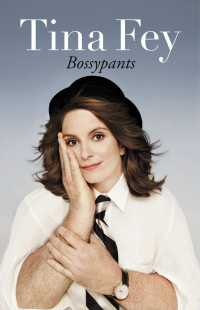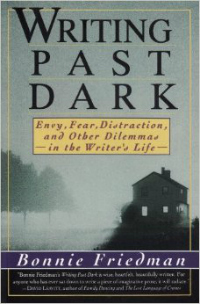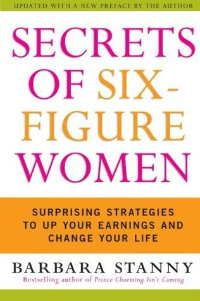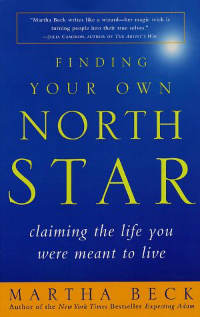Hannah Braime's Blog, page 25
May 5, 2015
#81: Getting Real in Relationships with Dr Susan Campbell
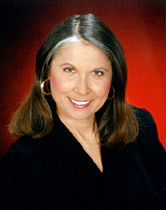 In this week’s podcast, I’m excited to be talking to Dr. Susan Campbell, a relationship coach and author of several books including Getting Real: Ten Truth Skills You Need to Live an Authentic Life and Five-Minute Relationship Repair: Quickly Heal Upsets, Deepen Intimacy, and Use Differences to Strengthen Love.
In this week’s podcast, I’m excited to be talking to Dr. Susan Campbell, a relationship coach and author of several books including Getting Real: Ten Truth Skills You Need to Live an Authentic Life and Five-Minute Relationship Repair: Quickly Heal Upsets, Deepen Intimacy, and Use Differences to Strengthen Love.
Topics we discuss include: Why vulnerability and intimacy can feel so challenging (and the simple shift we can take to turn difficult moments into opportunities for connection) How to say no with compassion and kindness What happens we we become emotionally triggered and how we can deal with these situations A framework you can use to heal conflict in relationships …and much more!
Share the Wisdom
Sometimes the truth isn’t always smooth and easy.
Click To Tweet
Most people try to do something about a feeling; why not just feel a feeling?
Click To Tweet
You can reach out with connection even when you’re so-called rejecting somebody.
Click To Tweet
Useful Links
Getting Real: Ten Truth Skills You Need to Live an Authentic Life
Five-Minute Relationship Repair: Quickly Heal Upsets, Deepen Intimacy, and Use Differences to Strengthen Love
Susan
Website: susancampbell.com
Five-Minute Relationship Repair: fiveminuterelationshiprepair.com
Hannah
Twitter: @hannahbraime
Facebook: The Tribe
Website: becomingwhoyouare.net
Intro and outro: Stephanie Murphy
Image: Scott Webb via Unsplash
The post #81: Getting Real in Relationships with Dr Susan Campbell appeared first on Becoming Who You Are.










April 27, 2015
Are You Taking Passive Action or Massive Action?
Listen to this post here:
Whenever we start something new, we need to make a decision:
Am I committed to passive action or massive action?
I first heard about this idea from Brooke Castillo (check out her wonderful podcast here). She describes massive action as taking action until you get the result you want.
Except most of us get confused between massive action and passive action.
The difference between these types of action is simple but important:
Passive action = consumption. Massive action = creating.
Click To Tweet
Passive action is reading books, taking classes, registering for courses, and talking to people about our plans. All of these things can feel productive, and that’s where the danger lies: we’re not actually doing something that will directly take us closer to our goal. Massive action, on the other hand, is actually going out and utilising what we’ve learned.
This resonated with me as I’m currently preparing to speak at the Alive in Berlin conference in May. I know it’s going to be awesome, and I’m also feeling pretty darn nervous about the whole thing. So of course, I’ve read a book on public speaking, I’ve bookmarked a ton of articles about it, I’ve watched several TED talks, and I’m considering joining an online course.
All of those things feel like preparation and feel like productive things to do… except none of those things are any kind of substitute for actually speaking—actually sitting down, preparing my workshop, practising my butt off, then doing the talk itself.
And that’s the problem with passive action. Yes, whenever we do something new, it’s helpful to read a book, take a course, talk to some people about it. But at some point, the time for those things is done, and if we continue to do those things beyond that point, we are just hiding from ourselves.
At its core, passive action is really about opting out of feeling intense feelings.
Being willing to fall flat on our face is terrifying. It brings up all our stuff about rejection, judgement, abandonment, inadequacy, and so much more. Our brains process rejection in the same way as they process physical pain (which explains why we use the phrase “a slap in the face” as a metaphor for rejection).
Massive action is about inviting those emotions in and truly feeling them. Because, as “life or death” as they feel, they are not actually life or death. The worst that can happen is another emotion.
Massive action is the thing that’s going to introduce you to yourself and all those feelings we try so hard to avoid. Passive action is deceptive: it can feel like we’re doing so much! We end up feeling exhausted, but it’s an exhaustion that is induced by hiding. Massive action is exhausting in a way that gets us closer to our goals.
At the end of her podcast, Brooke invites us to commit to taking massive action on a goal that is meaningful to us for 30 days.
What massive action are you going to take this month?
The post Are You Taking Passive Action or Massive Action? appeared first on Becoming Who You Are.









April 20, 2015
4 Signs It’s Time to Be Your Own Hero
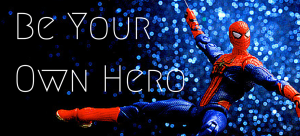 This post is adapted from Section 2 of Be Your Own Hero, the course that provides the tools to connect to your courage, live your values, be true to yourself, act with integrity, and do good deeds on your own terms.
This post is adapted from Section 2 of Be Your Own Hero, the course that provides the tools to connect to your courage, live your values, be true to yourself, act with integrity, and do good deeds on your own terms.
Be Your Own Hero is available now. Click here to find out more!
We are lucky in so many ways. Lucky to be born into this world, lucky we have this amazing technology that most of us take for granted, and lucky to be alive during a time where things are evolving so rapidly.
We’re also lucky to be complex human beings and lucky to have an early-warning system that tells us when we’re straying from our needs and values—the things that make us “us.” Here are four warning signs that signal it’s time to step up and be your own hero.
1. You feel resentment, frustration or sadness around a particular situation or commitment.In psychological literature, there’s something called the “Yes…Damn!” effect, which describes those situations in which we agree to something then end up thinking “Damn!” later when we realise we’ve over-committed or agreed to do something we don’t really want to do.
If you’re feeling resentment, frustration or sadness around a particular commitment, that’s a sign that there’s something about this commitment that’s not really aligned with your values or priorities. Maybe you feel sadness because by honouring this commitment you’re missing out on something else that you’d really rather be doing. Maybe you feel resentment towards the person you’ve made the commitment to, or maybe you feel frustrated that you’ve said yes when you know that in your heart of hearts, the authentic response would have been “no” or a conditional yes.
These feelings are uncomfortable but they’re so important to pay attention to as they show us where we’re living in alignment with our values and taking care of our needs, and where we’re not. Sometimes we tell ourselves that we shouldn’t feel this way if we’ve agreed to something or if we didn’t speak up when we had the chance, but the fact is that we do feel that way, so rather than punishing ourselves for our natural responses to situations that don’t serve us, we’re much better off thinking “So what can I do about this now?” Remember that it’s not over until it’s over. You can revisit the conversation or agreement and re-negotiate.
2. You want to blame other people for things you’re doing/not doingI used to be friends with someone who had a lot of unfulfilled dreams, ideas, and ambitions—and so many reasons why she hadn’t followed through on them yet. Most of the reasons concerned her partner; he was unsupportive, he micro-managed her, etc. In reality, she had always played the role of the less successful/stable partner in the relationship and that of the partner in need, and making excuses felt more comfortable than changing that dynamic.
Recognise that it’s your choice to do or not do something, whatever that something might be. Even if someone is difficult to negotiate with, that doesn’t mean you can’t do the things you want to do (nor does it mean you should give up trying to negotiate with them entirely). If you have an unsupportive partner, friend, parent, boss, etc., negotiate. Hear their reasons, try to understand them, and also stay anchored to what’s important to you.
3. You’re compromising your integrity/key values to keep other people happyI’ve had a couple of people ask me to lie for them in the past. And not just tiny white lies, but big porky “massive -repercussions-for-me-if-this-comes-out” kinds of lies. It took me a couple of harsh lessons to realise that is is never a reasonable request. No one should ever, ever ask you to compromise your values for them, no matter who they are.
If they do, you have every right to refuse and view that request as a big waving red flag.
4. You use language like “have to” when actually you mean “choose to”Out of everything we do in life, very few things are “have to”s. A few of these include basic functions like breathing, sleeping, eating, and using the bathroom. The rest is all stuff we choose to do. Yes, that includes going to work, laundry, and taking your kids to football practice. You have the freedom to turn around and say “I’m not going to do that.”
True, you’ll face consequences, like losing your job, having stinky clothes, and having unhappy children, but that doesn’t mean you have to do those things. You choose to do them because you like the consequences of doing them; you like having money (and hopefully get some kind of fulfilment from your job too), you prefer wearing clean and nicely-fragranced clothes to soiled and people-repellant garments, and you prefer seeing your kids burn off some energy and have fun on the field rather than get upset and tear up the house.
This is a subtle but important distinction; it’s the difference between feeling resentful, frustrated and victimised and feeling grateful, liberated and empowered (We’ll talk more about this distinction in Be Your Own Hero).
What are your personal signs that it’s time to be a hero?
If you’d like to discover what being the hero of your own life is all about, I invite you to find out more about the Be Your Own Hero e-c0urse. If it feels right to you, I hope you’ll join us!
Image: Chris Sardegna
The post 4 Signs It’s Time to Be Your Own Hero appeared first on Becoming Who You Are.









April 16, 2015
#80: How to Read 100+ Books Each Year
If you’ve been wanting to read more, this episode is for you. This week, I’m sharing another interview with my significant other, Jake from The Voluntary Life, on how to read 100 or more books per year. I love reading and truly believe it’s a gateway to a more learned and fulfilling life (the same goes for listening to audiobooks, if that’s more your cup of tea).
Topics we discuss include: How to read 100+ books per year without using speed-reading or any other techniques.\ How to choose what to read What systems you can put in place to make your reading more efficient and inspiring How to retain information from what you’re reading (even when you read a lot)
…and much more!
Useful Links How many books can you read in a lifetime? from Cosmos by Carl Sagan Calibre free e-book library management application Voice Dream iOS App Kindle Highlight Feature MacJournal GoodReads Drafts iOS app Evernote Say HelloJake
Twitter: @jakedesyllas
Website: thevoluntarylife.com
Hannah
Twitter: @becomewhour
Website: becomingwhoyouare.net
Intro and outro: Stephanie Murphy
The post #80: How to Read 100+ Books Each Year appeared first on Becoming Who You Are.










April 13, 2015
The 4 Most Common Types of People-Pleasing (and How to Stop)
 This post is adapted from Section 2 of Be Your Own Hero, the course that provides the tools to connect to your courage, live your values, be true to yourself, act with integrity, and do good deeds on your own terms.
This post is adapted from Section 2 of Be Your Own Hero, the course that provides the tools to connect to your courage, live your values, be true to yourself, act with integrity, and do good deeds on your own terms.
Be Your Own Hero is available on 17th April.
The number one obstacle that gets in the way of us being our own hero is prioritising who we think we should be over who we actually are.
When we do this, we end up living according to other people’s values and beliefs rather than our own (also called “people-pleasing”). This is a bit like trying to fit a square peg into a round hole; it creates friction, discord and a whole ton of internal conflict. We’ve usually had excellent reasons to prioritise other people’s beliefs and values over our own in the past but doing this doesn’t serve us as adults.
The different “types” of people-pleasingPeople-pleasing comes in a variety of flavours. This is why it can feel so intangible and hard to identify at times. Here are the five main types of people-pleasing that we might encounter, as explained by Dr Jay Earley in his Self-Therapy Journey.
Conflict Avoidant: When you go out of your way to avoid conflicts. Care-taking: When you take care of and make sure the other person doesn’t feel uncomfortable. Compliance: When you go along with what other people think, feel, and want. Active pleasing: When you anticipate what makes other people happy and give it to them. Merging: When you try to be the same as a partner or a special person, assuming their interests, lifestyle, and life path even when it doesn’t fit with your own. What’s the alternative?Conflict Accepting: Acknowledging and accepting that conflicts are a part of life. The closer the relationship, the more likely it is that you’ll have conflicts from time to time. When two people with different histories, different needs and different preferences are in close relationship, it’s natural that those histories, needs, and preferences will bump up against each other at times. Annoyance, frustration, anger and hurt are healthy reactions to situations where we feel like we’ve been wronged, or to situations that run counter to our needs.
Part of being our own hero means acknowledging these feelings in ourselves while recognising that they don’t have to lead to an all-out fight. Note: conflict doesn’t necessarily mean fighting. If you currently associate conflict with fighting, think of it more like the stage between negotiation and argument.
Care-taking: It’s not your responsibility if someone else feels uncomfortable. If they do, it’s their job to figure out. Making assumptions for people isn’t fair on them, even if those assumptions are coming from a well-meaning place. Dropping the care-taking role means accepting that the other person (or people) is capable, resourceful, and has everything they need to create situations that work for them in life.
Compliance: We all know that everyone is different. Recognise that your own thoughts, feelings and desires are part of what makes you you and that individuating (i.e. learning to separate our needs and preferences from those of other people) is a natural part of becoming an adult.
Sometimes, other people might expect you to be compliant. Just as it’s not our job to make sure other people feel comfortable, it’s also not our job to conform to other people’s expectations. The right people will honour your individuality and accept this.
Active pleasing: On the surface, there’s nothing wrong with active pleasing. In fact, anticipating what makes other people happy and giving it to them is a beautiful addition to a relationship. The line between altruism and people-pleasing lies in whether we’re sacrificing our own needs to do so. Many of us are raised to believe that sacrifice is the ultimate virtue. In reality, it’s the ultimate path to frustration and burnout (N.B. In Be Your Own Hero, we dive into the art of win-win negotiation, a skill that allows us to create situations that please other people and please ourselves).
Merging: When we’re used to merging with other people, it can be hard to know what not merging looks like. Therefore the first step is to recover our sense of our own needs and preferences, accept that these needs are just as important and valid as other people’s, and to recognise that no one else is going to come along and live our lives for us; that’s our responsibility and ours alone.
Do any of these types of people-pleasing resonate for you? Based on what you’ve read here, what could you do differently in the future?
If the descriptions above resonate with you, I invite you to find out more about Be Your Own Hero. To hear when the course is available (and grab your earlybird gift!) click here.
Image: Micah Hallahan
The post The 4 Most Common Types of People-Pleasing (and How to Stop) appeared first on Becoming Who You Are.









April 9, 2015
#79: Living as the True You with Kendra Tanner
 This week, I’m delighted to welcome back Kendra Tanner (who was a guest on episode 54 this time last year). Kendra is a coach who helps people fully express their thoughts, needs and desires through her movement, The True You Project.
This week, I’m delighted to welcome back Kendra Tanner (who was a guest on episode 54 this time last year). Kendra is a coach who helps people fully express their thoughts, needs and desires through her movement, The True You Project.
Topics we discuss include: What is the true self? What happens when we ignore or repress our true selves and how to get back in touch with the more authentic parts of ourselves. Questions you can ask and thought games you can play to reconnect with your true self How to speak your truth, even when it feels hard …and much more!
Share the Wisdom
The closer you get to the core, the further away it becomes. You’re evolving.
Click To Tweet
Ask yourself: ‘What is true for me right now?
Click To Tweet
Three things that get in the way of our true selves: shame, fear & the desire for certainty.
Click To Tweet
Useful Links
The True You Project
Finding Your North Star – Martha Beck
Essentialism – Greg McKeown
Kendra
Facebook: facebook.com/groups/lovefoodlovelife
Website: thetrueyouproject.com
Hannah
Twitter: @hannahbraime
Facebook: The Tribe
Website: becomingwhoyouare.net
Intro and outro: Stephanie Murphy
Image: Roger Burkhard
The post #79: Living as the True You with Kendra Tanner appeared first on Becoming Who You Are.










April 6, 2015
You Can Do Anything But Not Everything
One of my biggest struggles in life and business is impatience—wanting to do all the things, and wanting to do them right now.
One of my biggest lessons from life and business is that both are a long-term game.
As well as dealing with this in my own life, this sense of impatience or urgency often comes up with clients too. Coaching is a powerful process and, as things start to shift, people notice a world of opportunities that they hadn’t necessarily seen before.
I’m going to write six books this year!
I’m going to train to be a counsellor and pay off my credit card debt and start my own freelancing business and go travelling!
I’m going to do yoga twice a day and train for a half-marathon in 3 months!
I’m going to write 50 guest posts and blog twice a week!*
(*These might or might not be past “ideas” of my own)
I totally get this enthusiasm and, let me be clear, this post is not about crushing it.
This enthusiasm is what carries us through the points in any project or goal when things inevitably stop feeling so new and novel, and start feeling a little harder and grittier. This enthusiasm is highly contagious and often helps other people get on board with our wild ideas (or inspires them to come up with a few ideas of their own).
This enthusiasm isn’t the issue: channelled correctly, it can help us do incredible things.
In the long-term, however, the “do all the things and do it all right now” mindset isn’t sustainable.
It’s not sustainable for the obvious reasons: we all have a finite amount of time and energy to give in a single day. We have a finite amount of purchasing power and, as unsexy it sounds, budgets matter. Most of us have existing commitments that limit the amount of emotional, temporal and financial resources we can dedicate to the new objects of our enthusiasm.
It’s also not sustainable because, although this mindset is framed by enthusiasm, it’s rooted in scarcity.
The driving force behind that urgency is insecurity: wanting more than we have and in wanting to be more than we are. Behind that impatience is a focus on outcome, rather than process. Behind wanting to do everything at once is a lack of commitment.
Sometimes we want to do all the things because we are rudderless in a stormy ocean. We’ve spent so long listening to people tell us what we should want and should think that we don’t know what it looks like to plant our own anchor and decide “This is my priority.”
Sometimes we want to do all the things because we know deep down that we can’t possibly do all the things and that this is a great way to commit to nothing in the meantime—to not take any risks, not not fail, to not experience change.
Sometimes we want to do all the things because we want a shortcut. We want the life of the person who is 5 years ahead of us right now, so we try to replicate what they’re doing now, instead of what they did to get that point.
Whatever the case is, we show up as our best when we view life through a lens of “enough,” rather than “not enough.”
The only thing that truly exists for us is the present, and this is the truth about the present:
You can do anything, but not everything.
Click To Tweet
Fulfilment, achievement and productivity lie in deciding “What is most important to me right now?” and having the courage and commitment to see it through. They lie in falling in love with the process, rather than chasing the outcome.
What is important to you right now? If you had to pick one thing to commit to this week, what would that one thing be?
P.S. Want a daily reminder of this principle? I’ve been using Amanda Genther’s beautiful desktop wallpaper as a reminder of this for the past couple of weeks.
Thanks for reading. If you know someone who might be interested in this post, please share it using the buttons below.
Want to start taking action on your big ideas and dreams? Get a free video class on how to get from stuck to started by signing up below. You’ll also get useful messages and updates from me and are free to unsubscribe anytime.
Get your weekly dose of authenticity hereImage: Jonas Nilsson Lee
The post You Can Do Anything But Not Everything appeared first on Becoming Who You Are.









April 2, 2015
#78: Authenticity, Growth and Community with Rosie Tran
 Today’s episode is a little different to usual—in this conversation I was the interviewee :)
Today’s episode is a little different to usual—in this conversation I was the interviewee :)
Rosie Tran from Out of the Box podcast kindly hosted me on her show a few weeks ago. So much of what we talked about relates to the kinds of topics we discuss here on the Becoming Who You Are podcast too, so with Rosie’s permission I’m sharing the episode this week.
Here is the description of the episode from her site:
Comedian Rosie Tran (@FunnyRosie) interviews life coach, author, and blogger, Hannah Braime (@becomewhour) about how to become your authentic self. This is a great episode with tons of great information about how to transcend judgement from others by surrounding yourself with a supportive group of people, while working to grow, learn, and evolve into a better person. Hannah is a life coach who works with people to expand their definition of who they are, by shedding the masks that we all put on to “fit in” and “please others”. This is a fun and positive episode with many gems of information from a well rounded and wonderful guest!
Useful LinksOut of the Box podcast on Soundcloud
Say HelloRosie
Twitter: @FunnyRosie
Website: outoftheboxpodcast.com
Hannah
Twitter: @becomewhour
Facebook: The Tribe
Website: becomingwhoyouare.net
Intro and outro: Stephanie Murphy
The post #78: Authenticity, Growth and Community with Rosie Tran appeared first on Becoming Who You Are.










March 30, 2015
March Reads
Here are some of my favourite reads from March:
My favourite? Finding Your Own North Star. This is the first book I’ve read by Martha Beck and I was pleasantly surprised. It contains tons of exercises, actionable steps, and she has a beautiful writing voice that manages to be humorous, encouraging and inspiring at the same time.
What books have you enjoyed reading this month? Leave a comment and let me know.
The post March Reads appeared first on Becoming Who You Are.









March 28, 2015
#77: From Grief to Gratitude with Eli Trier
 In this week’s podcast episode, I’m talking to Eli Trier about how to cultivate a nurturing gratitude practice. Eli is an artist and an author of grown-up illustrated books for dreamers and adventurers. After experiencing depression, she was drawn to creating art again and started The Gratitude Project, which combined her love for art and an appreciation for all the good things in her life.
In this week’s podcast episode, I’m talking to Eli Trier about how to cultivate a nurturing gratitude practice. Eli is an artist and an author of grown-up illustrated books for dreamers and adventurers. After experiencing depression, she was drawn to creating art again and started The Gratitude Project, which combined her love for art and an appreciation for all the good things in her life.
Topics we discuss include: How Eli used an intentional gratitude practice while experiencing depression How to find the gold in challenging situations using powerful questions How committing to a regular gratitude practice transformed Eli’s perception of her life How you can cultivate an effective gratitude practice …and much more! Share the Wisdom
You can choose to appreciate everything because the dark is there for a reason.
Click To Tweet
Gratitude isn’t about denying anything, it’s about expanding your perception of the world.
Click To Tweet
Eli is kindly gifting Becoming Who You Are listeners a sample chapter from her book, The Gratitude Project. Click here to download it.
Say HelloEli
Twitter: @EliTrier
Facebook: facebook.com/elinor.trier
Website: elitrier.com
Hannah
Twitter: @becomewhour
Facebook: The Tribe
Website: becomingwhoyouare.net
Intro and outro: Stephanie Murphy
Image: Morgan Sessions via Unsplash
The post #77: From Grief to Gratitude with Eli Trier appeared first on Becoming Who You Are.











